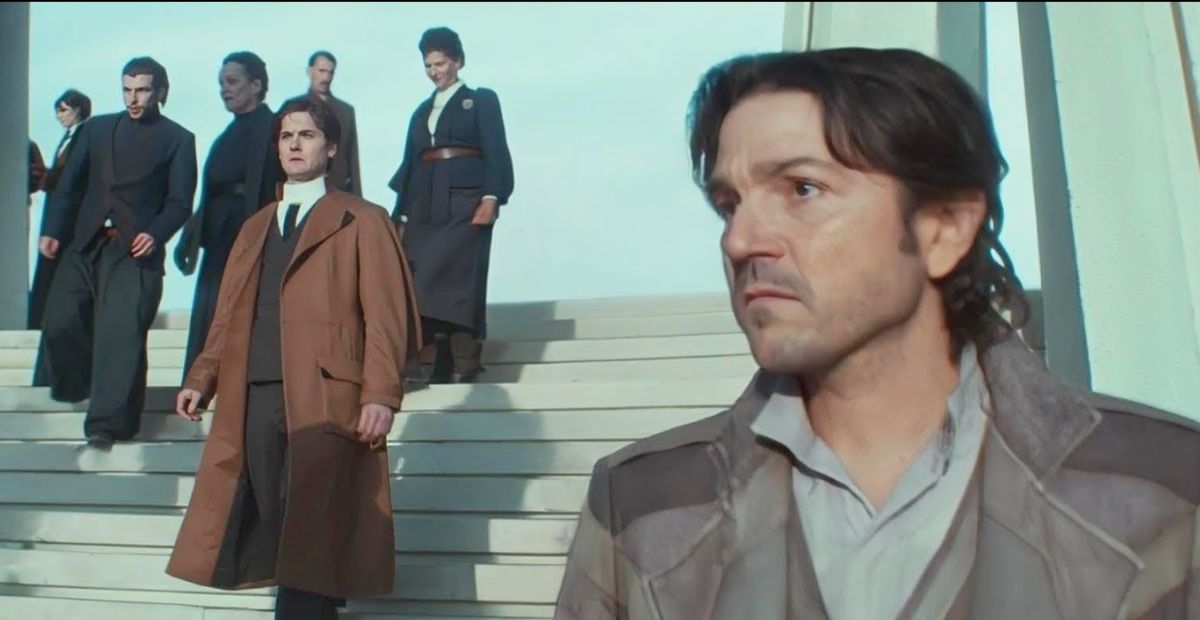We Star Wars fans know how central the Force is to the saga—the mystical energy, the lightsaber duels, the chosen heroes and fallen villains. It’s iconic. But with Andor, something remarkable happened. The show didn’t need Jedi mind tricks or lightsaber clashes to hold our attention. It didn’t rely on Force-wielders to show the weight of the Empire’s grip. It simply told the story of ordinary people pushed to extraordinary limits.
We didn’t need a Kenobi-style Force showdown to understand what the Empire could do to anyone who stepped out of line. Andor proved that fear, control, and rebellion could be just as powerful without a single lightsaber ignited.
During his appearance on The Late Show with Stephen Colbert, Gilroy broke it down with clarity and just a bit of mischief. When asked why the show feels so grounded, he explained how he approached Star Wars like an outsider trying to understand a vast religious system.
“You have to think of Star Wars as the Roman Catholic Church,” Gilroy said. “There’s a Vatican, and there are people who are experts. I called the guy and asked: ‘How many people in the galaxy know about the Force? How many have actually seen a lightsaber?’ Probably very few.”
And just like that, Gilroy found his angle: Andor would focus on the rest of the galaxy—the everyday people living under the boot of the Empire. The ones who don’t believe in space wizards, who haven’t seen glowing blades tear through battle droids, and who don’t know the name Skywalker.
Instead of the Force, Andor is about fear, surveillance, rebellion, and hope in the face of impossible odds. It’s a galaxy-spanning tale told from the street level, where characters like Cassian Andor don’t get visions or destiny—they get arrested, interrogated, and pushed into choices that slowly, painfully shape who they become.
“Half the people making the show are Star Wars nerds on a broad spectrum,” Gilroy said with a grin. “And the other half were just trying to be convinced it was okay to even make the show.”
That balance shows. Andor speaks to longtime Star Wars viewers while pulling in people who may have never watched a single Jedi duel. And that accessibility, Gilroy believes, is what makes the series work. It isn’t trying to be part of the “royal family” of Star Wars—it’s interested in the foot soldiers, the prison workers, and the nameless citizens who realize they can’t stay silent anymore.
Stephen Colbert summed it up best when he said, “It could almost not be a Star Wars story at all—and that’s why it works.”
By choosing to leave out the Force, Andor lets us see the impact of the Empire not through prophecy or magic, but through oppression, injustice, and resistance. It’s a choice that redefines what a Star Wars story can be.

